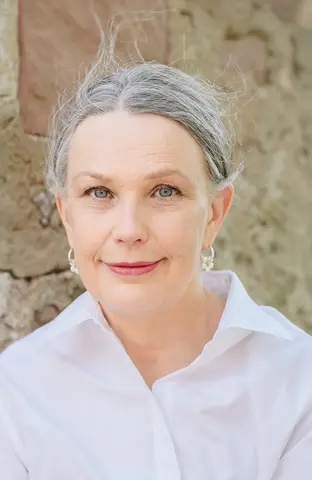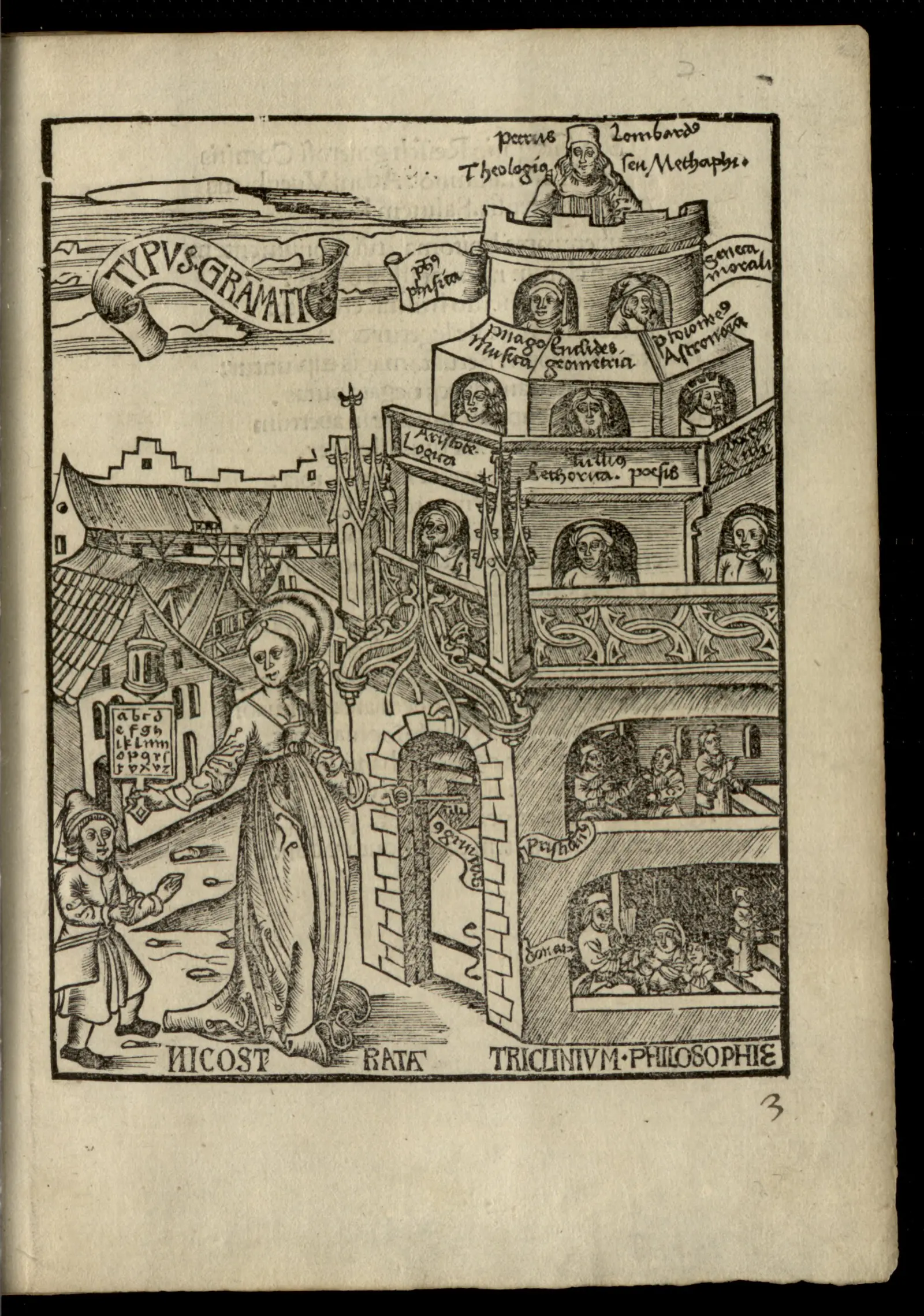Prof. Dr. Claudine Moulin
claudine.moulin@uni-erfurt.deFellow (Max Weber Centre for Advanced Cultural and Social Studies)
Office hours
Nach Vereinbarung
Visiting address
Max-Weber-Kolleg für kultur- und sozialwissenschaftliche Studien
Forschungsneubau „Weltbeziehungen“ C19
Nordhäuser Str. 63
Mailing address
Max-Weber-Kolleg für kultur- und sozialwissenschaftliche Studien
Postfach 90 02 21
99105 Erfurt

Personal information
Claudine Moulin studied German and English Philology in Brussels and Bamberg. After her PhD (1990) she was a researcher in Historical Linguistics and Medieval Literature at the University of Bamberg, where she gained her Habilitation in 1999 in the field of German Linguistics and Philology. She was in Oxford (1995, 1997) for several research stays as a Heisenberg Fellow of the Germann Research Foundation (DFG), working on vernacular paratexts and marginalia in medieval manuscripts, and in 2002, professor for Linguistics at the University of Luxembourg. Since 2003, she holds the chair of Historical Linguistics at the German Department of the University of Trier (Germany) and is the co-director of the Trier Center for Digital Humanities (TCDH).
She was a. o. a member of the Standing Committee for the Humanities of the European Science Foundation (ESF) and a member of the Social and Cultural Innovation Strategy Working Group of ESFRI (European Strategy Forum on Research Infrastructures). She is a. o. founding member of DHd, the Association for Digital Humanities in German speaking countries, a member of the Medieval Committee of the Herzog August Bibliothek (Wolfenbüttel), a member of the Scientific Board of the Reformationsgeschichtliche Forschungsbibliothek (Wittenberg) and chair of the Scientific Board of the German Historical Institute in Paris (DHI Paris).
2010: recipient of the Academy-Prize (Akademie der Wissenschaften und Literatur, Mainz).
2012/13: visiting professor, École Pratique des Hautes Etudes EPHE/Sorbonne in Paris (Department for Art History).
2014/15: research fellow, Institute of Advanced Studies/ Institut d'Études Avancées de Paris (IEA).
2019-2021: visiting professor, École des Hautes Études en Sciences Sociales / EHESS Paris
Research interests
Research project
Negotiating the Religious – Linguistic and Communicative Practices in Early Modern Urbanity
The project explores linguistic patterns, scriptural practices and language change in the context of urban communication and their interaction with religious practices, ideas and institutions. For Western Europe, the development of urban structures from the late Medieval times onwards has led to typical forms of urban literacy. Especially the “shift” of religious literacy and its written textuality from the closed situation of Latin-dominated medieval monasteries to open urban centers with their own scriptorial practices in the vernaculars has generated new text genres and linguistic strategies which still remain to be analyzed in a more comprehensive and interdisciplinary context, particularly in the context of the Reformation in the German speaking countries.
Tackling this issues within the methodological framework of the KFG “Religion and Urbanity: Reciprocal Formations” with a special focus on a genuinely urban corpus of texts – namely vernacular grammars, writing, and linguistic treatises of the 16th and 17th centuries – will allow new insights not only for the domain of historical linguistics but also for the relating disciplines. The methodological approaches already developed in the Research Centre will be explored on a theoretical level from the perspective of historical linguistics; as far as can be seen, this has not been systematically the case yet within the underlying framework. Both the conceptual tools developed around the terms of heterarchy for the investigation of actor constellations and co-spatiality for the investigation of different forms of spatializations, as well as the three focal points for the second project phase (group formation, mercantalization and boundary drawing), can be theoretically tested on the project defined here. Furthermore, factors of ambivalence and resilience seem to play a certain role in text genre in the focus of the analysis, for example in coping with linguistic variation and a certain conservatism in the replication of normative models. The central methodological idea is, in addition to exploring the concepts and methodological approach of the Research Center from the point of view of another discipline (namely, historical linguistics), to transfer these methods specifically to a socio-pragmatic approach of the history of language. Conversely, in an interdisciplinary dialogue, the project, with its methods coming from historical urban language research as well as confessional language history, aims at creating a dialogue and methodological synergies with related disciplinary fields, such as history, sociology, anthropology and theology.
Literature:
Moulin, Claudine (2021): Aufstieg der Volkssprachen, der Buchdruck und die Macht der Sprache. Eine Fallstudie zur frühen Grammatikschreibung des Deutschen. In: Jan Martin Lies (ed.): Wahrheit – Geschwindigkeit – Pluralität. Chancen und Herausforderungen durch den Buchdruck im Zeitalter der Reformation, Göttingen, 145–162; Peter von Polenz/ Claudine Moulin (2021): Deutsche Sprachgeschichte vom Spätmittelalter bis zur Gegenwart. I. Einführung – Grundbegriffe – 14. bis 16. Jahrhundert. 3. A., Berlin – Boston.
Publications
You can access Claudine Moulin's list of publications by clicking on the following link.


